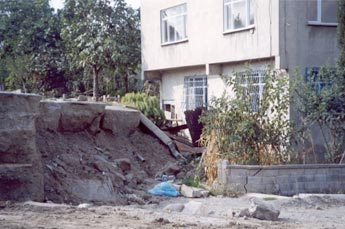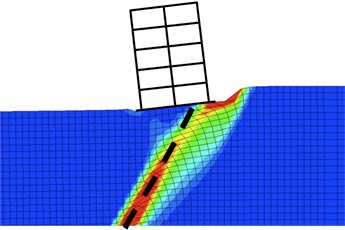QUAKER : Fault-Rupture and Strong Shaking Effects on the Safety of Composite Foundations and Pipeline Systems: Quantification and Reduction of Seismic Risk through the Application of Advanced Geotechnical Engineering Techniques (2003-2006)
The primary scope of this research project was to gain deeper understanding of the effects of seismic loading on soil-foundation-structure systems and lifelines. More specifically, two major unresolved issues were addressed, both relating to large ground deformation due to strong seismic events : (i) the behaviour of infrastructures very close to surface fault-rupture, and (ii) the seismic performance of raked (i.e. inclined) piles – a rather controversial foundation system. In both cases, an integrated approach was applied, combining field studies of documented case histories, carefully controlled geotechnical centrifuge model testing, and advanced numerical modeling (calibrated against field and experimental data, and offering additional insight into the nature of the interaction). Besides from improving the level of knowledge on the subject, producing high quality experimental and field data, and developing numerical and analytical methods, the project culminated with the development of practical (although still tentative) engineering design recommendations.



